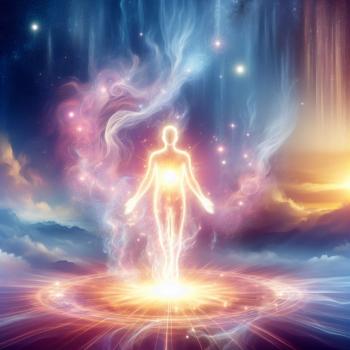There is a lot of talk today in the popular culture and the culture’s popular churches about the act of “deconstruction.” Deconstructionists suggest we live in a world comprised of socially crafted narratives. Or, better said, the world just is these narratives. These narratives are purpose-giving stories which are not true in any metaphysical, trans-historical or universal sense. Rather, they are useful for us to function as social animals, relational creatures who cannot thrive apart from some cohesive story. The purpose lies not in these stories’ approximation to truth but in their perceived practical benefits for human organisms. Taking apart these stories, therefore, is a means to progress. That is, if better stories can be created.
This process of deconstruction is central to the various forms of Critical Theory that gained prominence in the first half of the 20th century in the West and which have recently been popularized. Deconstruction, however, need not be a nihilistic endeavor, a fear many early critical theorists shared. If seen in the right light, the process of deconstruction inevitably points to that which is indestructible, namely, the unconditioned reality of God. In this series I will attempt to show that there are indelible marks we all share, and, in virtue of sharing these marks, we can know we are more than just creators of stories. In recognizing these universal features we can know we are also characters in a Story that has been created for us.
Deconstruction and Critical Theory
The act of deconstruction and Critical Theory go hand in hand. James Bohman in the Stanford Encyclopedia of Philosophy, refers to Max Horkheimer’s summation of what a critical theory is:
Echoing Marx in The German Ideology, Horkheimer insists that for a critical theory the world and subjectivity in all its forms have developed with the life processes of society (Horkheimer 1972b [1992, 245]).
James Bohman, “Critical Theory“
Thus, according to Horkheimer, for anything to count as a “Critical” theory, one must assume that “reality” (the world and subjectivity in all its forms) is constructed by society. Reality is not that which societies try to analyze, ascertain and adapt to. “Reality” in the metaphysical sense is unknowable. Moreover, even if we could know it, it would be unhelpful to telling us anything about how we should live. Therefore, it is incumbent upon societies to construct a “reality” that is livable.
As such, any cultural narrative, having developed “with the life processes of society” tends to be useful only for a while. After all, societies’ “life processes” change over time. Moreover, cultural narratives are only useful to some members of society, not necessarily to all. Or, at least, we have never developed a narrative that seems useful to all, even if there may be one in principle. These narratives, therefore, are always at some point defunct and require serious revision or even outright demolition.
The goal then of deconstruction is to find out what the current needs and longings of society are and then activate the right social and political mechanisms to fulfill those needs and longings. A more ambitious goal might be to fulfill the needs and longings of literally everyone in a given society. Were this achieved, then something like an experience of transcendence would follow. Advocates of Critical Theory often refer to this experience as one of “liberation.” Again, referencing Horkheimer, Bohman sums up this foundational premise of any Critical Theory:
According to these theorists, a “critical” theory may be distinguished from a “traditional” theory according to a specific practical purpose: a theory is critical to the extent that it seeks human “emancipation from slavery”, acts as a “liberating … influence”, and works “to create a world which satisfies the needs and powers of” human beings (Horkheimer 1972b [1992, 246]). Because such theories aim to explain and transform all the circumstances that enslave human beings, many “critical theories” in the broader sense have been developed.
James Bohman, “Critical Theory”
Critical theorists also claim that this goal of emancipation from ‘slavery’ (of various forms) and the actualization of human powers is entirely within the capacity of human beings to achieve. Like one former governor of New York, most critical theorist hold that God plays no role in dealing with the ills of human affairs.
In addition, one can understand narrative deconstruction as one step in the process that actualizes the theoretical part of any critical theory. Political activism would be the more concrete follow-up to deconstruction. So for any particular critical theory, e.g., critical race theory or critical feminist theory, there will be (must be) a concerted effort to point out fatal flaws in any traditional theory. Traditional theories are those that purport a universal truth or set of truths that are binding upon and relate to all people regardless of place or time. However, when fatal flaws of reason are not found in a traditional theory, then appeals to emotion or propaganda are often the next steps in the process of deconstructing.
Consequently, traditional theories that attempt to frame, explain or give a coherent and comprehensive account of human life and history are viewed through an interpretive lens of suspicion and skepticism (Paul Ricoeur’s “hermeneutics of suspicion”). This suspicion of “meta-narratives,” to use Jean-Francois Lyotard’s term, is not necessarily bad although it can be toxic. If a hermeneutic of suspicion is employed without qualification, it defeats itself, acting like an acid that eats through any and all claims to truth and knowledge, to include its own premises. Michael Mattek highlights this aspect of deconstruction, pointing to its potentially infinite deferral of meaning:
With deconstruction, faith is placed in the notion that centers of interpretation are only provisional–that terms and entities are forever defined by other authorizing sources, which then must be defined by still other authorizing sources, which then must be defined by still other authorizing sources, without end.
Mattek, “Deconstruction, Christianity, and George Herbert’s ‘The Collar'” in Intersections in Christianity and Critical Theory, 172
This incredulity toward all narratives is a predicament that Nietzsche warned about; a vicious, infinite regress of subjective statements in need of some grounds for their validity (some authority). It also represents the conditions under which we now hold much of our popular dialogue and in which many of our apologetical efforts are carried out. Given its self-defeating nature, it truly is a confusing starting point.
In sum, we can make some initial assessment about the central features of Critical Theory:
- Ontologically speaking, reality is itself a product of social processes. If there is a “world” outside of our current interpretations of it, we cannot know it.
- Teleologically speaking, liberation or the experience of something as liberating is the ultimate goal of any critical theory.
- Regarding moral action, narrative deconstruction followed by political activism are the primary means through which liberation can be achieved.
- Hermeneutically speaking, suspicion and skepticism toward all prior narratives or theories is the norm. History is not a source of wisdom or sage advice, rather it is a corrupt mythology.
- Finally, the target of any critical theory is all of society and the total deconstruction of any value system perceived as having had dominance in the past. If a system was built based on some earlier narrative, then the entire system is infected with that narrative’s principles and must be dismantled.
Personal and Societal (Micro and Macro) Deconstruction
There are two levels to the act of deconstruction. There are personal deconstruction stories that follow this same pattern of critical engagement, say deconstruction of faith stories. Then there are large-scale deconstruction stories. Large-scale deconstruction stories take on entire histories, philosophical models and even scientific paradigms. However, the follow-up to much of this deconstructing work is often vague, arbitrary and ambiguous.
In an indispensable book, Marxism and Christianity, Alasdair MacIntyre suggests that this vagary about proposed future states of affairs exists in both worldviews:
But just as Christianity has been much better at describing the state of fallen men than the glories of redeemed men, so Marxism is better at explaining what alienation consists of than in describing the future nature of unalienated men. Yet it is clear that the concept of a human nature freed from alienation is not an empty one, and that its content cannot be understood apart from its origins. Man rescued from alienation will be liberated man, but in what will his liberty consist?
Alasdair MacIntyre. “Marxism and Christianity.” Apple Books.
While the future hope of an “unalienated” or liberated man is not entirely outside of our imaginative capacities, a sober assessment of our human condition should lead to the conclusion that if there are no fixed and universal truths, then any act of deconstruction is simply the replacing of one fantasy with another. This can happen at both levels of deconstruction, the micro and macro. However, it is historically undeniable that the ramifications of the deconstruction of macro-narratives can be tremendous.
The major concern here is relativism, especially, but not only, moral relativism. Morally speaking, if there really are no true stories (or stories that represent some truth), why would we care about stories that might leave some members of society out in the cold, while others warm themselves by the fires of health, wealth and prosperity? So long as we were or could find a way into the latter group, to be in that part of the story, then what would it matter that there were “haves” and “have-nots” in the overall plot?
I fear that in spite of the better angels of our nature, there is no serious answer in our current culture for why to prefer one story over the next. Unfortunately, a common outcome of such an ideological stand-off is some kind of totalitarianism. Human beings cannot live too long without an overarching narrative. If no one narrative can win out through a process of convincing and appealing, then some narrative will be enforced through compulsion and power.
Should We Fear Deconstruction?
In this series, I propose to show that the act of deconstruction, rightly understood, is itself something we all share in common. We are always in the process of deconstructing some aspect of our lives that doesn’t make sense or some part of our cultural history and its norms that no longer seems right to us. There are two important points to note here, however.
First, in sharing this feature together, we show that there is something, a process, that is not itself deconstrucable. It is universal to all cultures and their inhabitants to rethink our position (do I sound too much like Hegel here?), even if not everyone does to this to the same degree. Man is a questioning creature, a truly inquiring mind. We could call this shared feature something like “man’s insatiable curiosity.”
However, in virtue of possessing this common feature of deconstruction, deconstruction itself shows that radical skepticism is not the answer to our human condition. For, rightly understood, the process of deconstruction need not assume a perennial hermeneutic of suspicion. Instead deconstruction could be seen as evidence for a persistent search for truth. Not only that, but deconstruction could be understood as an innate optimism that the truth really is out there should we have eyes to see and ears to hear. After all, we cannot help but believe we have known at least some truths, that we know some true things now and that there will be more true things we will come to know. Deconstruction implies reconstruction (now I do sound like Hegel!).
Second, if this process of deconstruction is approached with wisdom and a sense of wonder, it will actually lead us to recognize some foundational truths. These truths, like the process itself, cannot be deconstructed but, once found, or better said, “once rediscovered,” can only be willfully ignored. The process of deconstruction inevitably leads us to firm foundations upon which we can build an individual life or rebuild a culture. In other words reconstruction does not mean building something brand new. Instead it means reconstruction within a certain set of universal givens. These foundations are natural and common to us all.
One of these foundations is the truth about our human identity, which I will discuss in the next post.

















